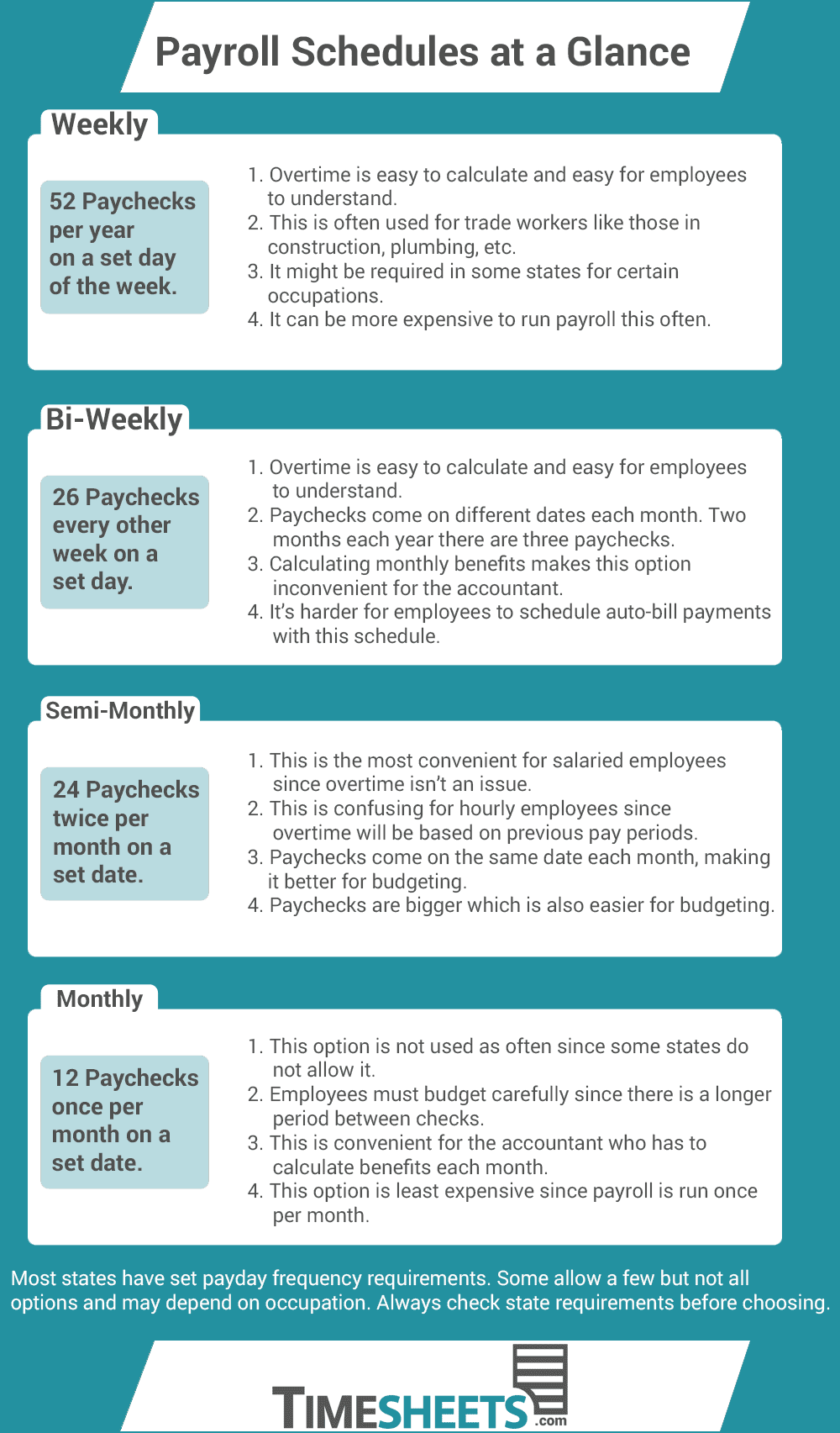Most companies can choose which payroll schedule they want to use, depending on the state in which they operate (check here for more info: payday frequency requirements by state). Four options are allowed in the US, including: weekly, bi-weekly, monthly, and bi-monthly. Each option has specific benefits. This payroll schedule infographic should help business owners get a handle on the right choice for their company.
Weekly Payroll Schedule
Paychecks come on a set day of the week.
Pros
- Weekly overtime is easy to calculate since the workweek should match the pay period.
- Employees don’t have any problem understanding overtime calculations.
- Employees living paycheck to paycheck prefer getting weekly payroll checks.
- It is required in some states for certain occupations.
Cons
- Most payroll companies charge to run payroll.
- This creates more work for the accountant who has to calculate monthly payroll taxes, benefits, accruals, etc.
- Paychecks are small, which can be hard to manage for most employees.
Bi-Weekly Payroll Schedule
Paychecks always come on a set day of the week.
Pros
- Weekly overtime is easy to calculate since the first day of the workweek should match the first day of the pay period.
- Employees who make overtime regularly usually prefer biweekly paychecks.
- Employees don’t have any problem understanding overtime calculations.
Cons
- This creates more work for the accountant who has to calculate monthly payroll taxes.
- Two months out of the year there are three paychecks so that is extra work for the accountant twice a year.
- Paychecks fall on different dates throughout the month, which can make it difficult for employees to budget and to schedule automatic bill payments.
Semi-Monthly Payroll Schedule
Paychecks always come on a set date of the month.
Pros
- This is the most convenient option for salaried employees since they don’t make overtime and don’t worry about confusing calculations.
- Twice monthly paychecks make it easy to schedule bill payments with employees’ banks.
Cons
- It can be hard for hourly employees to understand overtime calculations since part of a workweek often falls in a previous pay period.
- Employees might complain to managers that their overtime is incorrect, when it is actually fine.
Monthly Payroll Schedule
Paychecks always come on a set date of the month.
Pros
- Running payroll is less frequent and so it’s cheaper.
- Payroll matches up with monthly payroll taxes and benefits.
Cons
- Monthly payroll is not allowed in many states so it’s not widely used.
- Monthly paychecks can be difficult for budgeting for lower wage workers.
Embed this infographic on your site with this embed code: <div style=”clear:both”><a href=””><img src=”https://blog.timesheets.com/wp-content/uploads/2017/01/new-payroll-schedules-infographic.png” title=”Payroll Schedules at a Glance” border=”0″ /></a></div><div>Courtesy of: <a href=”http://www.timesheets.com/”>Timesheets.com</a></div>








2 Responses